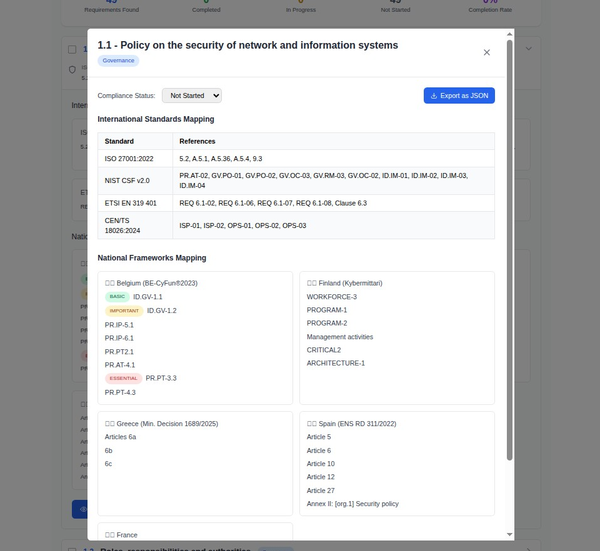Comparing and Contrasting Global Data Privacy Laws: GDPR, PIPEDA, POPIA, APPI, PDPB, PDPA, APPs, Swiss-US Privacy Shield, and LGPD

In the era of digital transformation, data privacy has become a paramount concern for individuals and organizations alike. Different countries have established their own data privacy laws to protect their citizens' personal information. This article provides a comparative analysis of nine major data privacy laws worldwide: GDPR (EU), PIPEDA (Canada), POPIA (South Africa), APPI (Japan), PDPB (India), PDPA (Singapore), APPs (Australia), Swiss-US Privacy Shield, and LGPD (Brazil).
GDPR vs. Others
The General Data Protection Regulation (GDPR) is a comprehensive data protection law implemented by the European Union. It has set the benchmark for data privacy laws globally due to its extensive scope and stringent requirements. Here's how it compares with the other laws:
- PIPEDA (Canada): Like GDPR, PIPEDA also emphasizes consent for data collection and provides individuals the right to access their data. However, PIPEDA applies only to private-sector organizations and not to any entity that collects personal data.
- POPIA (South Africa): POPIA shares similarities with GDPR in terms of data subject rights and data breach notifications. However, POPIA has a unique provision where it requires organizations to appoint an Information Officer.
- APPI (Japan): APPI and GDPR both require businesses to take necessary measures to safeguard personal data. However, unlike GDPR, APPI does not have a provision for data portability.
- PDPB (India): The proposed PDPB shares several features with GDPR, such as data principal rights, data breach notifications, and the requirement of a data protection officer. However, PDPB also introduces unique concepts like the right to be forgotten.
- PDPA (Singapore): PDPA and GDPR both require organizations to protect personal data, but PDPA does not require a legal basis for data processing like GDPR does.
- APPs (Australia): The Australian Privacy Principles (APPs) cover many of the same areas as the GDPR, but there are differences in the execution and enforcement of these principles.
- Swiss-US Privacy Shield: This framework is designed to enable data transfers between Switzerland and the US. It's similar to GDPR in terms of data protection principles, but it's not a comprehensive law like GDPR.
- LGPD (Brazil): LGPD is very similar to GDPR in terms of its principles, rights of the data subject, and the concept of a data protection officer. However, LGPD has broader definitions of what constitutes personal data.
Conclusion
While all these data privacy laws aim to protect personal data, they differ in their scope, principles, enforcement, and penalties for non-compliance. Therefore, organizations operating globally must understand the nuances of each of these laws and ensure they comply with each jurisdiction's requirements. It's also important to note that this comparison provides a general overview, and the specifics of each law should be studied in detail for comprehensive understanding and compliance.
Please note that this article is intended to provide a general overview of these data privacy laws and does not constitute legal advice. For detailed guidance on compliance with these laws, please consult with a legal expert in data protection law.





